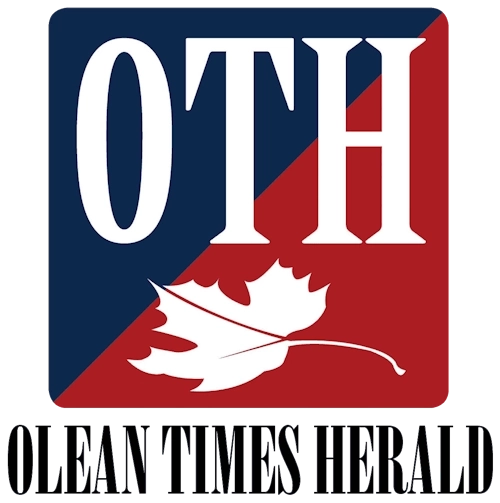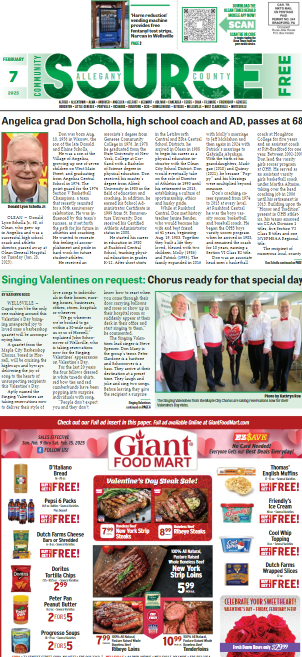Sempolinski, Borrello concerned recycling bill would raise costs for families
Assemblyman Joe Sempolinski says a proposed state recycling bill would increase costs for families, farms and businesses if it becomes law.
The Packaging Reduction and Recycling Infrastructure Act, also referred to as the Extended Producer Responsibility (EPR) law, would shift responsibility for recycling away from private recycling companies and municipalities and make “producers” like farms, nurseries, cider mills, dairy co-operatives and cheese plants responsible for New York’s recycling program.
Sempolinski, R-Canisteo, voted against the bill, as a member of the Assembly Environmental Conservation Committee, when it was reviewed by the committee. While the full Assembly hasn’t voted on the bill yet, the state Senate passed it in a 33-25 vote last week.
“This is another ill-conceived, job-killing bill that will increase grocery costs and hurt New York’s already struggling businesses and families,” Sempolinski said in a statement. “Like the electric school bus mandate and the push to ban natural gas, this bill was drafted by members of the Democrat majority to pander to their base while ignoring the adverse impact on average New Yorkers.”
Supporters of the legislation argue that, with the average New Yorker producing 5 pounds of trash per day, accumulating to a total of 15 million tons of waste statewide per year, the measure would shift the burden and responsibility for reducing packaging waste to the producing companies.
The New York League of Conservation Voters (NYLCV) notes that, specifically, the bill would require companies with net income of more than $1 million that sell or distribute certain materials and products to reduce packaging and toxins in the packaging and improve and help pay for municipal recycling.
State Sen. George Borrello, D-Sunset Bay, is concerned about the cost of the bill, which he said would be passed on to consumers.
“What I fail to understand is, how do they have a crystal ball to explain how we’re going to solve the packaging problems that are created?” Borrello said to The Post-Journal of Jamestown in reference to studies saying consumers will save $1.3 million if the state enacts the Packaging Reduction and Recycling Infrastructure Act.
“How will they possibly know what any industry, all industries that will be impacted by this, particularly the food industry, which has to worry about food safety?” Borello added. “How can they possibly know what the cost of repackaging products specifically for New York, and New York only, is going to impact consumers? How is that even possible?”
Citing a York University study, the Business Council of New York State estimates the EPR could raise the average family of four’s grocery bill $38 to $61 per month, or $456 to $732 per year, and result in a $1.3 billion increase in direct costs to New York’s farms and businesses. Noting that New York has lost already 3,000 farms, the New York Farm Bureau opposes the bill because New York’s farmers cannot bear the cost.
“This legislation will lead to many farms, dairy co-ops and ag businesses closing because they just can’t afford it,” Sempolinski said. “I’m opposed to this legislation because it threatens the viability of our already-struggling farms and businesses and it will raise costs for our already-struggling New York families.”
The assemblyman said New York leads the nation in the number of citizens and businesses moving out as people and businesses flee high taxes and regulations. He added New York also leads the nation with the highest tax burden in the country — the average New York taxpayer pays more than $12,000 in taxes per year when the national average is around $7,000.
“These are the kind of statistics the tax and spend culture in Albany has created,” Sempolinski said. “My colleagues in the Democrat majority talk a lot about making New York more affordable for families and businesses. If the EPR bill is how they are trying to help us, they should stop.”
NYLCV counters that “waste is a major contributor to greenhouse gas emissions, accounting for 12% of the state’s total output. Packaging and paper waste in particular has grown dramatically with the rise of the delivery economy, with no signs of letting up.” The group states that by requiring producers to internalize the cost of the waste their products create, they are financially incentivized from the start to reduce the amount of waste they produce .
NYLCV said New Yorkers only recycle about 17% of their waste, with most packaging waste ending up in landfills.
“This proposal would help New York create a circular economy that will prioritize recycled and recyclable materials,” the group stated. “We can do this by creating incentives for producers to use less packaging in the first place. This would shift the financial burden of recycling away from taxpayers and municipal governments and instead back to the producer, to compel these companies to use materials that are easier to recycle and generate less waste overall.”







